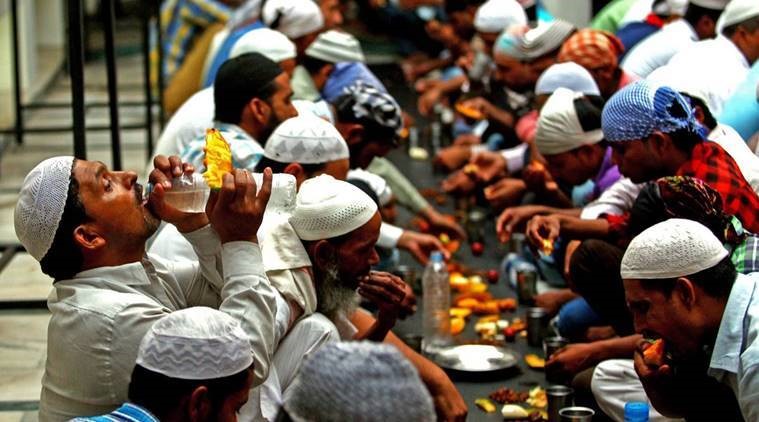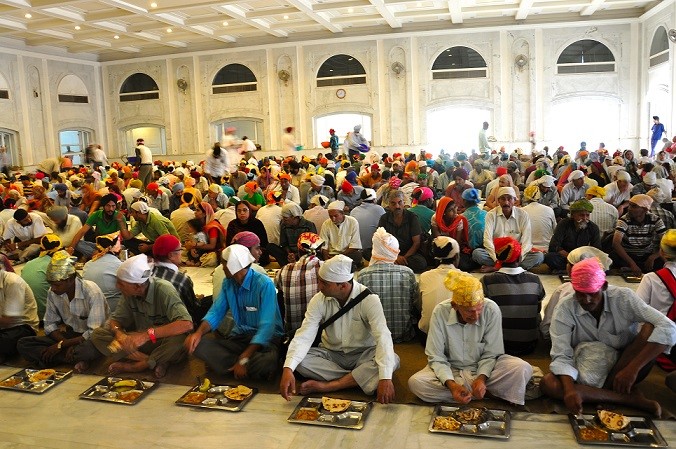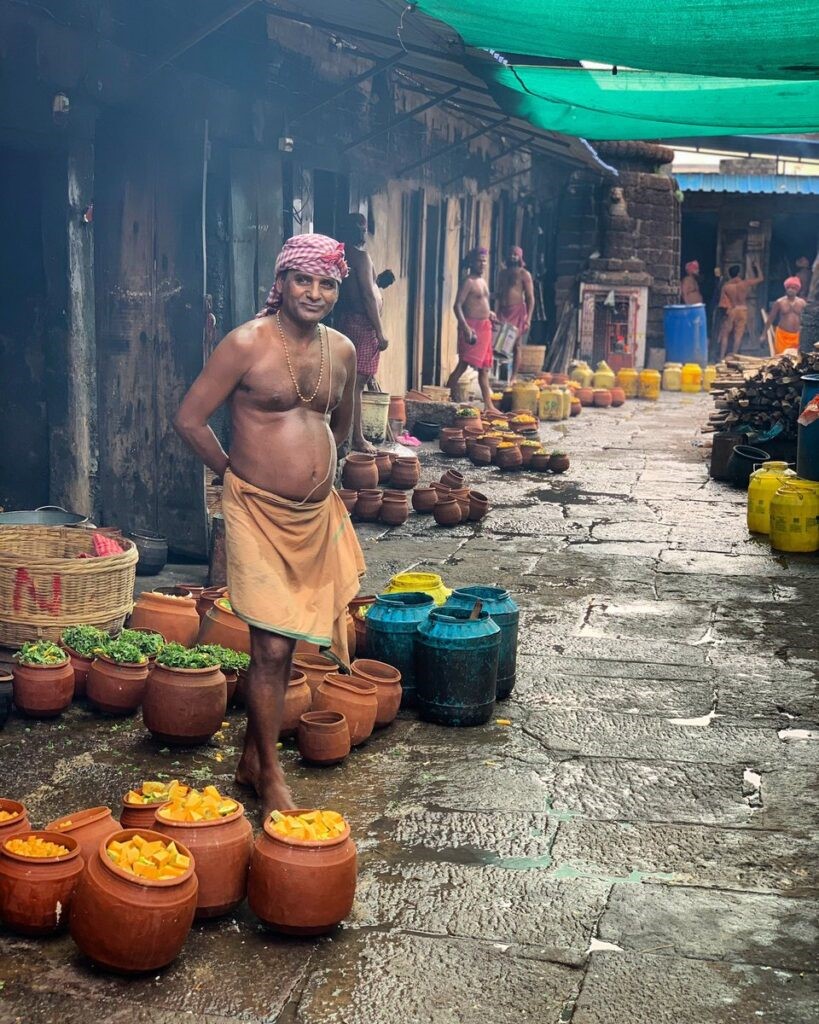.webp)
Talat Rasool
Langar and Iftar are two important traditions of community eating in India that have their roots in the country's rich cultural ethos and religious diversity. While Langar is a tradition of communal eating in Hinduism and Sikhism, Iftar is a practice of breaking the fast during the month of Ramadan in Islam.
Iftar is usually done by family or friends while Iftar parties or larger gatherings are also planned by influential people and organizations. Both langar and Iftar have contributed significantly to strengthening the social fabric of India.
Serving food to needy people has been known in Hinduism for more than 2000 years. Dharmashalas with attached community kitchens for pilgrims going to Temples were common during the Gupta Era. Temples in South India like Balaji and Meenakshi temple hold regular langars for the devout and others.

Muslims breaking their fast during Ramazan
Langar is a Persian word meaning a place for the poor and needy. It is said that the Sufi exponent Baba Farid (born 1188 CE) was the first one to initiate the practice of Langar in Punjab. However, the tradition of Langar has its origins in Sikhism founded by Guru Nanak in the 15th century. Guru Nanak emphasized the importance of service and equality, and his teachings formed the foundation of the Sikh faith.
The practice of Langar was formalized by the third Sikh Guru, Guru Amar Das, who established the tradition of serving free meals to all who visited the Sikh temples, regardless of their caste, gender, or religion.
The tradition of Langar became an important part of Sikhism and has been used as a way of promoting social harmony and equality in India. Big community kitchens are organized across India on Gurpurab and Baisakhi in which vegetarian food is served to people.
Langars are organized with equal fervor in important Muslim shrines also. Dargah of Moinuddin Chisty, located at Ajmer has a langar running since 1567 A.D when Mughal Emperor Akbar donated a large cauldron to the shrine for cooking the sacred meal.

Langar in a Gurdwara in india
Langars are regularly organized in temples across India on important occasions. However, in Hindu-ism, individuals also organize langars on occasions like Ramnavmi, Human Janmostsav, Nvaratri, or anytime they feel like Thanksgiving. Large queues can be seen at these langars for the meal.
Sikh organizations around the country also provide free meals to the homeless and needy in Gurdwaras, and during times of conflicts and natural calamities. The Sikhs have used langer to bring people together and break down barriers between different communities. Its recent example was seen in Turkey and Syria when after the devastating earthquake hit the country and the Sikh volunteers organized langars for the needy there.
The tradition of Iftar has its roots in Islam, which was introduced to India in the 7th century by Arab traders. During the month of Ramazan, Muslims fast from dawn until sunset and break it with Iftar. The practice of Iftar became more elaborate over time, with communities coming together to share meals and celebrate the blessings of Ramazan. Usually biryani and a variety of fruits, chiefly dates, melons, oranges, and grapes, and desserts like firni and siwaiyan are served.

The community kitchen at Balaji Temple, Tirupati, Andhra Pradesh
In India, the tradition of Iftar has been used as a way of promoting interfaith harmony and understanding. During Ramazan, many Muslim communities open their doors to people of all faiths, inviting them to join in the Iftar meals and experience the hospitality and warmth of the Muslim community.
Hinduism, Sikhism, and Islam place a strong emphasis on service to others. In Hinduism and Sikhism, the act of service is known as "Seva," and it is considered to be a way of honoring and serving God. Hindus and Sikhs are encouraged to perform Seva in various forms, including volunteering at a temple, serving food to the poor, or donating to charity. Similarly, in Islam, the act of service is known as "Sadaqah," which means giving in charity or performing good deeds. Muslims are encouraged to give generously to those in need.
ALSO READ: Why Quranic egalitarianism must triumph over Muslim Personal Law
Both Langar and Iftar have played important roles in promoting social and communal harmony in India, and continue to be celebrated and cherished by people of all faiths. They are powerful symbols of the shared values of compassion and service in Hinduism, Sikhism, and Islam, and their continued practice demonstrates the enduring importance of these values in today's world.
